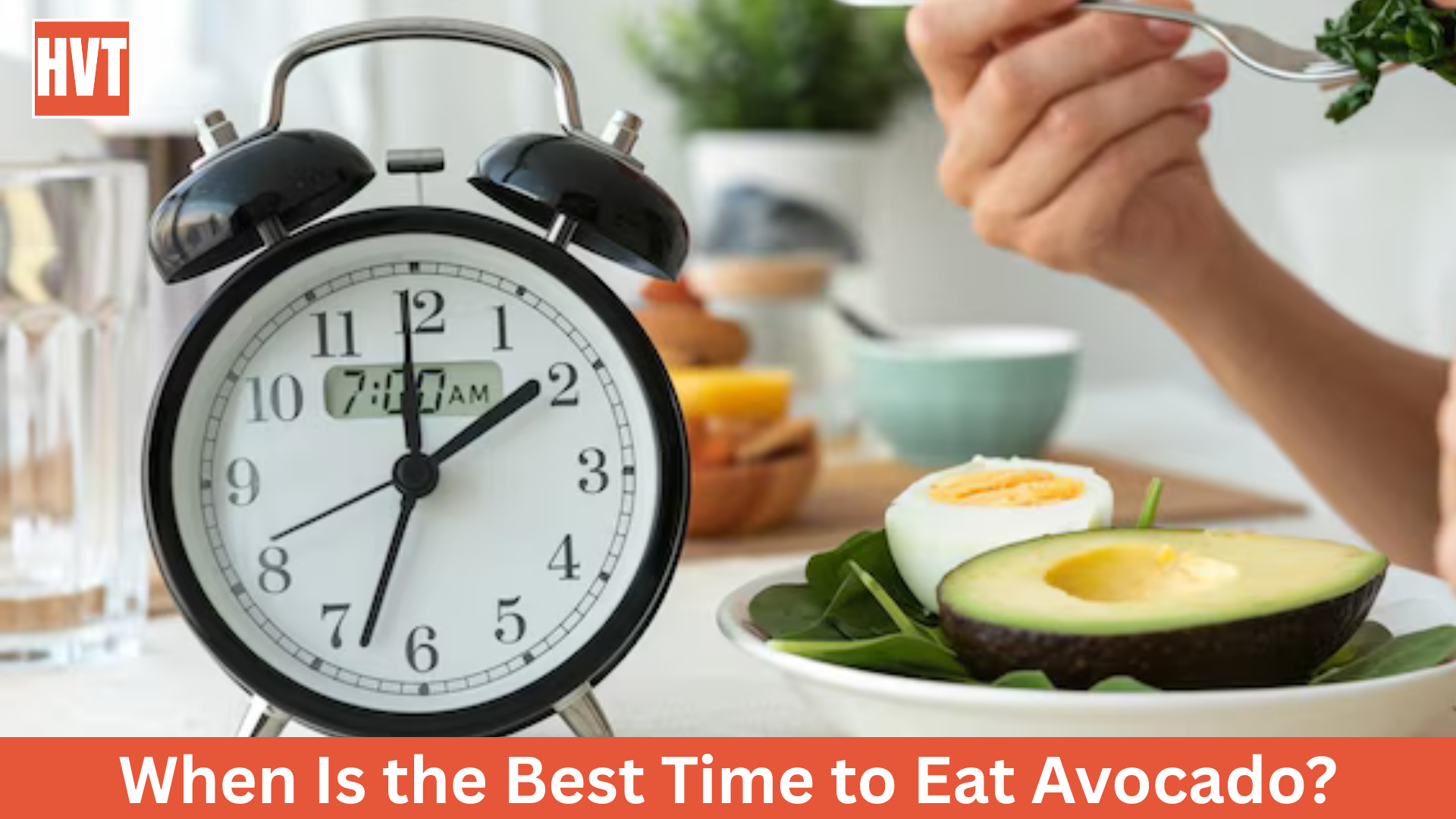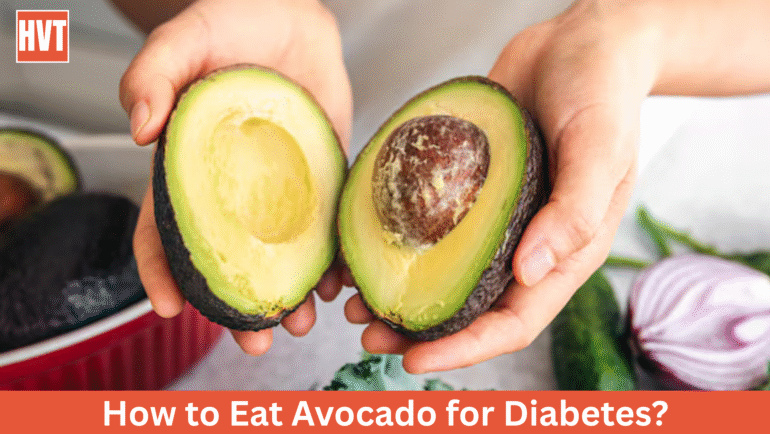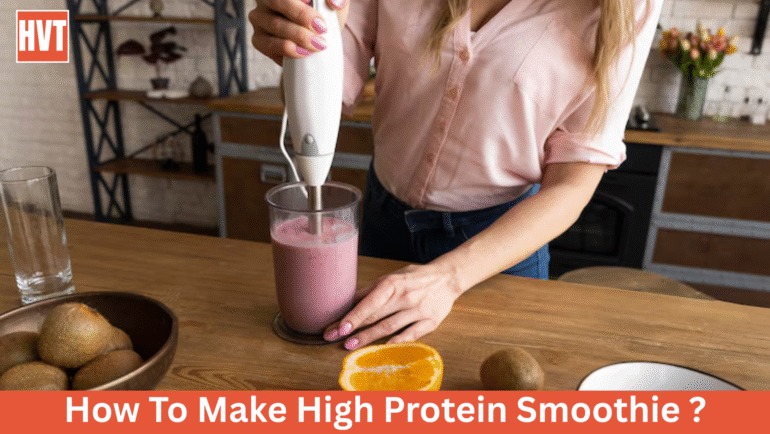
When Is the Best Time to Eat Avocado? Discover the Ideal Time for Maximum Health Benefits
Learn when is the best time to eat Avocado – Morning Breakfast, Dinner, Pre or Post Workout. Know what’s the right portion to consume Avocado, without any unintentional negative health effects.
Yes, Avocado is considered the nutritional powerhouse among all the fruits, and it comes in the category of a superfood. It is called a superfood because it has none of the bad nutritional qualities, such as: high glycemic index and natural sugar that raises blood sugar.
In fact, it is one of a kind food that is naturally high in nutrients such as Monounsaturated Fats and Fiber.
Being a superfood doesn’t mean that you can consume as much as you want. In fact, due to its high calorie-dense nature, dietitians advise controlling portions to gain maximum health benefits.

Avocado Nutrition Facts (Per 100g)
| Nutrient | Amount | % Daily Value* |
|---|---|---|
| Calories | 160 kcal | 8% |
| Total Fat | 15g | 19% |
| Monounsaturated | 10g | – |
| Polyunsaturated | 2g | – |
| Total Carbohydrates | 9g | 3% |
| Dietary Fiber | 7g | 25% |
| Net Carbs | 2g | – |
| Protein | 2g | 4% |
| Potassium | 485mg | 10% |
| Vitamin K | 21µg | 18% |
| Folate | 81µg | 20% |
Also Read
➧ Does Avocado Spike Blood Sugar?
➧ How to Eat Avocado for Diabetes? Timing & Methods
Best Time to Eat Avocado
➥ Morning (Boosts Metabolism & Fullness)
Only eating ½ avocado at breakfast enhances satiety and stabilizes blood sugar levels. The healthy fats and fiber in avocado reduce your mid-morning craving for snacks. In a study, it was found that people who ate avocado in their breakfast felt 23% fuller [1].
Best way to Eat:
➭ Spread mashed raw avocado on whole-grain toast with eggs (balanced protein with fats)
➭ Blend ½ avocado into a smoothie with spinach and green yogurt.
➥ Pre-Workout (Sustained Energy)
Consuming ¼ to ½ avocado 1-2 hours before exercise provides you with constant energy, increasing your performance longevity. The fats in avocado prevent energy crashes, unlike when you have high carbs. Research has shown that athletes on healthy fats have better endurance [2].
Best way to Eat:
➭ Sliced avocado with a handful of nuts
➭ Eat guacamole with whole-grain crackers.

➥ Post-Workout (Muscle Recovery)
Avocado’s high potassium and anti-inflammatory fats content aids in post-workout recovery and muscle repair. It is best consumed when paired with proteins like, chicken or quinoa
Best way to Eat:
➭ Sliced avocado with lean proteins as post-workout meal.
➭ Blended with your protein shakes or protein salads.
➥ With Meals (Enhance Nutrient Absorption)
Adding ½ avocado in any meal of the day increases absorption of fat-soluble vitamins (A, D, E, K) by 4-14 times [3].
Best way to Eat:
➭ Sliced avocado in salads along with leafy greens.
➭ As a dressing (mashed avocado with olive oil and lemon)
➥ Avoid Late Night (Digestion Concerns)
Like told before, avocado is very high nutrition-dense food with high fat and fiber. If you are eating too much it can cause bloating or unwanted weight-gain in the long run. So, stick to ½ or ¼ avocado portion per day.
Also Read
➧ Morning or Evening! Best Time to Workout for Fat Loss?
➧ How Much Avocado Can a Diabetic Eat in a Day?
Ideal Quantity & How to Eat Avocado
➥ Recommended Daily Intake
➭ ½ to 1 whole avocado per day (80-160 calories) is optimal for most adults.
➭ For diabetics or weight-conscious people: ⅓ avocado (50g) to manage calories.
Best Ways to Consume
| Format | Benefits | Ideal Pairing |
|---|---|---|
| Raw/Sliced | Preserves enzymes, fiber intact. | Salads, toast, or with eggs. |
| Mashed | Easier digestion; versatile. | Guacamole, dressings, spreads. |
| Blended | Quick absorption; great post-workout. | Smoothies with protein powder. |
*Avoid: Excessive processing (e.g., deep-fried avocado) which degrades nutrients.

Why You Should Not Exceed Recommended Quantity
➥ Potential Side Effects of Overconsuming Avocado
➭ Unwanted Weight Gain: Despite being rich healthy fats, an avocado with standard size can have 240 calories approximately. Hence, overconsumption can cause gain in weight, if the portions are not kept in check.
➭ Digestive Issues: High fiber may cause bloating if eaten in excess.
➭ Nutrition Imbalance: Excess potassium in avocado can cause imbalance in body if you on any other medication for blood pressure.
Final Thoughts
In the entire group of fruits Avocado is considered as one of the most nutrient-dense food, that offer healthy-fats, fiber and unique vitamins. However timing, quantity and food combination also matters:
➭ Eat early in the day for long lasting energy.
➭ Combine with various lean meats and green vegetables for maximum benefits.
➭ Avoid overconsumption to prevent weight gain.
It is necessary to be aware of that, each individuals have specific dietary needs. Children, adults, older adults, athletes or diabetics. Consult a registered dietitian for a personalized plan.
Also Read
➧ Can a Diabetic Eat Avocado Before Bed?
➧ What Should Diabetics Drink First Thing In The Morning?
Disclaimer: This article is for informational purposes only and does not offer medical advice or guarantee results. It is not intended to diagnose, treat, or cure any condition. Always consult a qualified healthcare professional before making lifestyle changes.








